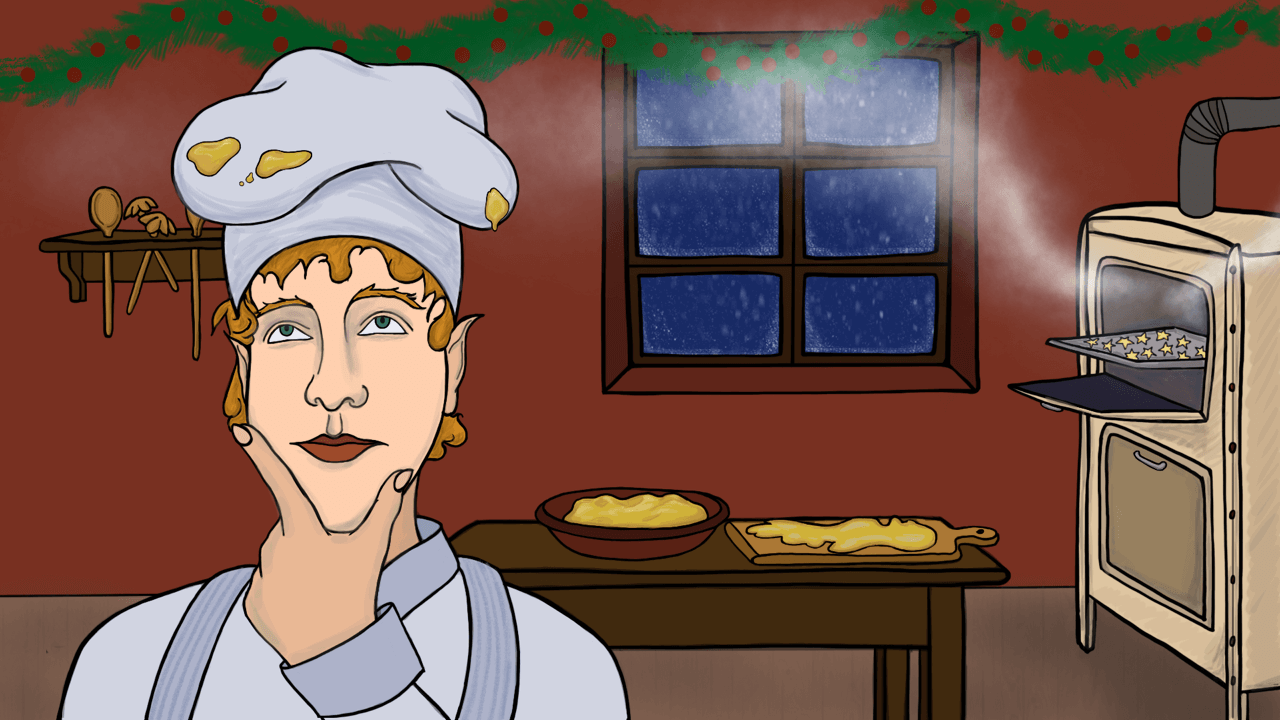
© Frauke Jansen, MATH+
Authors:Sarah Hiller, Rupert Klein (FU Berlin)
Project: A Mathematical Theory of Responsibility in Complex Multi-Agent Decision Problems with Uncertainties (EF 5-3)
Challenge
The Christmas bakery is cluttered and messy.
The elves are frantically baking cookies; the kitchen air is thick with flour dust, and the icing is dripping from the gingerbread houses. Santa comes into the bakery and tells the ten baking elves, “At least one of you has dough stuck to their hat!”
The elves look at each other. Everyone can see all the other elves, but not themselves. Since Santa and the elves are deeply honest creatures, they always tell the truth; and they all know that fact about each other. In addition, the baking elves are logical geniuses: they will always—and in no time—make the correct considerations with the information available to them.
- “If you know whether you have dough on your hat, step forward!” Santa continues. None of the elves moves.
- “If you know whether you have dough on your hat, step forward!” Santa repeats word for word. Again, all the elves stay still.
- As Santa repeats himself word for word
a third timeagain, some, but not all, of the elves step forward. - Finally, on the
fourthnext repetition of “If you know whether you have dough on your hat, step forward!” all of the remaining elves step forward.
Since Santa came to the bakery, the elves have not talked to each other or otherwise exchanged any secret information. Knowing whether one has dough on one’s hat means either one knows that one has dough on the hat or one knows that one does not have dough on the hat.
How many elves have dough stuck to their hat?
Possible answers:
- 1
- 2
- 3
- 4
- 5
- 6
- 7
- 8
- 9
- 10
Project reference:
This task is a common problem in the field of Dynamic Epistemic Logic (DEL), which studies the evolution of private and common knowledge, for example, through public communications.
Motivated by the needs of climate change research, the project EF 5-3 A Mathematical Theory of Responsibility in Complex Multi-Agent Decision Problems with Uncertainties aims to formalise the concept of moral responsibility—both backward- and forward-looking—in interactive multi-agent decision scenarios with various levels of uncertainty. We use methods from DEL also in our project to describe unawareness, which is relevant when assigning responsibility.